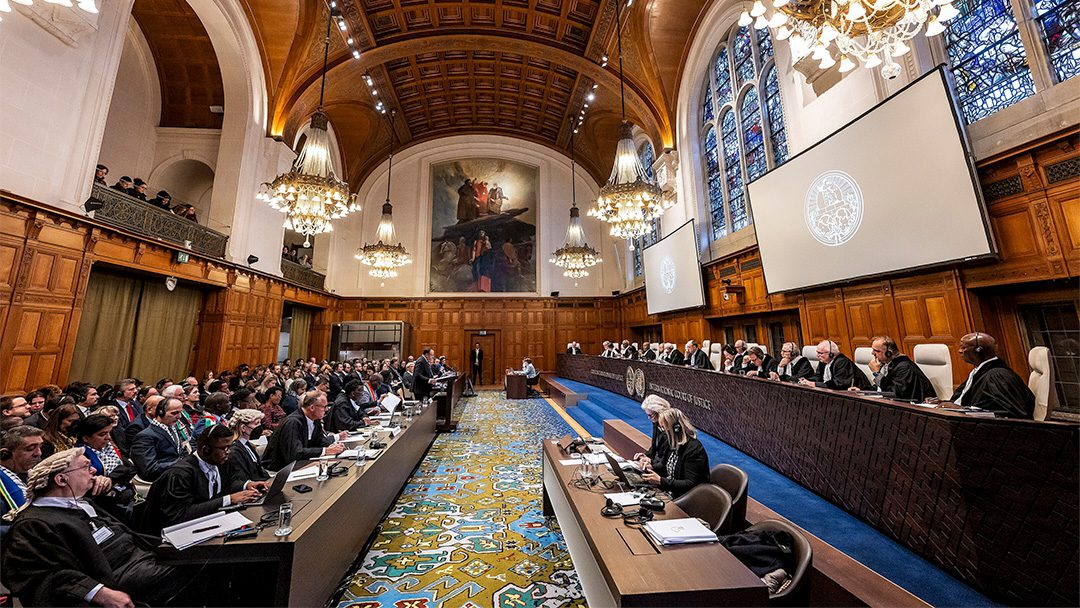Israel’s planned “annexation” of the territory was widely condemned when it was announced earlier this year. The issue is off the table for the time being, as a result of the recent “normalization~” agreements with the UAE and Bahrain. But it will come back at some time.
So, what is the legal status of the ‘West Bank’? Does it belong to Israel?
Israel was established in 1948 when the Mandate for Palestine came to an end. The Mandate committed the international community to the re-establishment of the Jewish homeland in Palestine—reflecting the historic, religious and cultural ties between the Jewish people and the territory of Palestine. This included Jerusalem and the area now known as the ‘West Bank’. The rights of the Jewish people to a national homeland in Palestine under the Mandate to “immigrate” and to “closely settle” the land were preserved by article 80 of the UN Charter.
The Mandate for Palestine was part of the wider post WWI settlement of the former Ottoman and German territories. The Arabs acquired sovereignty (and ultimately statehood) in the overwhelming majority of the Middle East—at the expense of the national rights of minorities, such as the Jews and the Kurds, amongst many others.
The day Israel after was created, the war was launched by Syria, Egypt, Jordan, Lebanon and Iraq to destroy Israel. Judea and Samaria were occupied by Jordan. In the Six-Day war in 1967 Israel won back the West bank and much more territory. Israel unified Jerusalem, and tried to negotiate “land for peace”. It imposed de facto occupation on the West Bank and Gaza—a political and military compromise. This has created a complex matrix of legal regimes (Jordanian, Ottoman, Israeli…) that has satisfied no-one and resulted in an appalling degradation of the dignity of the Arab Palestinian people. Major Jewish cities and towns have been built, and a “dual” legal system has developed with different legal regimes for Israelis and non-Israelis.
Israel has also never used unjustified force in order to acquire territory from another State
Unfortunately, the Israeli government over the last 50 years has not explained clearly on what basis it considers it has a valid claim to sovereignty over Judea and Samaria, preferring to use language like sovereignty being “in abeyance”.
In this apparent legal vacuum, since 1973 many countries have developed a policy that all the territories outside the 1949 Armistice Lines (the “Green Line”) are “Palestinian”, and none can (without the Palestinians’ consent) form part of the State of Israel. This “two-state” policy was introduced after the Yom Kippur War. It is a policy based on political expedience. It distorts international law and fails to take account of the facts.
International law forbids the acquisition of territory by force. But an act to incorporate territory is illegal only if (a) the affected territory belongs to another State, and (b) the acquisition results from use of force against the territorial integrity of another state. Neither of these conditions applies to the ‘West Bank’:
The ‘West Bank’ is not “Palestinian Territory”
The Palestinian people have a right to self-determination, but they do not have a legal right to statehood or territorial sovereignty. There is no State of Palestine according to normal international law rules (even the ICC Prosecutor agrees with that).
It is Israel that has the strongest claim to sovereignty over the territory of the West Bank. According to the normal rules of international law, this follows from the Mandate for Palestine (1922)—a treaty ratified by all 51 League of Nations member states.
Since 1948, Israel has never relinquished its sovereign rights, and no international tribunal has ever made a determination about the sovereign status of these territories (not even the International Court of Justice). Neither should the United Nations or anyone else.
No Illegal Use of Force
Israel has also never used unjustified force in order to acquire territory from another State, nor to acquire territory claimed by the Palestinians. Israel’s use of force in 1967 (when it acquired control of the West Bank) was defensive and entirely justified.
Israel’s obligation to negotiate is not open-ended. Arab states rejected land for peace offers since June 1967. The PLO has rejected several concrete offers of Statehood (eg. 2000 and 2008), while manipulating the international institutions (UN and ICC) to obtain political recognition of its claimed sovereignty over the whole West Bank territory, inciting terror and hatred of Jews, and denying Israel’s right to exist as a Jewish State—all in breach of Israel’s territorial integrity and security and the Oslo Accords themselves. Israel’s extension of its civil laws would be a justified response to the PLO’s continuous and blatant non-implementation of the Oslo Accords.
Applying Israeli sovereignty to parts of the ‘West Bank’ may or may not be a good idea. But, like it or not, Israel is also a sovereign state. Its territory is determined by the normal rules of international law. The international community simply doesn’t get to decide the borders of states on the basis of what they think is morally right or politically sensible.












0 Comments